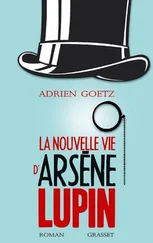At the weigh-in, F-BAZO and F-BAZN box in the same division — middleweight. On my right, Constellation F-BAZO, weighing 62,644 pounds. It was awarded its airworthiness certificate on February 27, 1948, and went into service on March 21, flying the seventy-seven-hour run from Paris to Saigon via Cairo, Karachi, and Calcutta. Five years after it joined the long-distance transport fleet to the Southeast Asian colonies, Indochina would gain its independence. On my left, Constellation F-BAZN, weighing 61,365 pounds, airworthiness certificate dated February 26, 1947, damaged on April 6, 1949, during a rough landing on the tarmac at Orly, de-icing port wingtip section, wing damaged along six and a half feet, far rear panel of the port upper wing surface creased over eight inches and breached over one inch at right angles to the end rib and the aileron hinge. Other than these details, the two airplanes are identical, F-BAZO fills its role as a sparring partner perfectly and is ready to shadowbox, or rather shadowfly, along the southern route to the Americas for the investigating commission’s report. The ghostly recapitulation will deviate from the path of the October 27 flight, however, making two stops along the way, the first in Madrid to take on representatives of the Spanish air force, and the second in Lisbon, where the director of Portuguese civil aviation and the liaison official for airlines will board.

Making the dead speak, turning tables and summoning spirits back for a last curtain call, asking a voice to encore from the beyond. The survivors are gangrened, gnawed at by absence. An army of inconsolables, imploring the mute graves for a sign, awakened in the night by a call that is only absence, tattooing its presence. Édith Piaf sinks into the realm of the dead, she is convinced that she will find the boxer again. “I am sure that Marcel is alive and waiting for me,” she says. The crash has become an obsession, the black mark of her fate: “It’s the first time I’ve fallen in love, and, whoosh, it’s all whisked away. They break my heart, tear him from me. Leave him smashed up. I’d like to die, but I worry that I won’t find him again if I commit suicide,” she writes to her friend, the actor Robert Dalban. The fear of dying and not finding him again. In early December, she gets a call from Marie-Jeanne Ronze-Neveu. A long conversation that Édith draws out as much as possible. Finally a sister in grief who understands her, hears her. Ginette’s mother says she talked with her daughter late one night. She experienced great joy from it, was reassured to find her daughter at peace. The account makes Édith hopeful, but also jealous — why is she unable to talk with Marcel? She becomes a religious zealot, haunts churches, buys a rosary, visits a synagogue, calls on sorcerers, fortune-tellers, charlatans of every stripe. Then, at an antiques dealer’s in America, she finds a pedestal table, the thing she has most wanted, a bridge to the other world. Michel Emer, her friend and the composer of the song “L’Accordéoniste,” tells her of the spiritual séances Victor Hugo held on the island of Guernsey. Nocturnal calls to Hauteville House, the turning table a link to his departed daughter Léopoldine. A three-legged pedestal table that rapped out up to four thousand words at a time. And the spirits that streamed into the poet’s drawing room — Chateaubriand, Dante, Aeschylus, Rousseau, Machiavelli, André Chénier, who came to put the final touches on an unfinished sonnet, Shakespeare, who dictated a new tragedy, The Dank Forest . The table, or, as Victor Hugo called it, “the shadow’s mouth,” urged him to keep writing, “the novel belongs to tomorrow,” it rapped out with its wooden tongue. Édith is hoping to hear Marcel forgive her, she knows she is at fault, she telephoned for him to come, she made him change his ticket, take the October 27 flight, she believes she robbed him of his life to indulge a whim. She herself had a phobia about airplanes, and when her friends would try to reassure her before a flight, saying that her hour had not yet come, she would retort, “And what if the pilot’s hour has come?” Why had she, selfish and impatient, overridden this fear, she asked herself? After many table-turning sessions, Marcel comes back. He talks to her, reassures her. After a brief reunion, the magic table moves on, reproaches Édith for stinginess. The table starts giving financial advice, essentially to promote the interests of her close friend Momone. The spirit-world contact turns blackmailer, Édith stops trusting it, turns away. She won’t again encourage the dead to speak.

According to legend, “Hymne à l’amour” was written in response to Marcel Cerdan’s death. This is false, the song was written in the spring of 1949 and was first intended for Yvette Giraud, a young singer whom Édith had taken under her wing. Her 1959 song “La Belle histoire d’amour” would be her hymn to Cerdan: “It’s your voice that I hear / Your eyes that I see / Your hand that I look for / I belong only to you.”

Four years before her death, writing her autobiography, Au bal de la chance ( The Wheel of Fortune ), Piaf said, “I’d have traveled a thousand miles to hear the great Ginette Neveu.”
25. Final News From Alsace
“You know where they’ll send me. Beyond the Maginot Line: it’s a guaranteed death trap.”
— Jean-Paul Sartre, The Age of Reason
René Hauth willingly gave up his post as managing editor of the daily newspaper Dernières nouvelles d’Alsace . Assigned to French Army headquarters, he joined the counterespionage division, which was posted to the Luxembourg front in January 1940. The offices of BREM, the Regional Bureau for Military Studies, had been installed in Longeville-lès-Metz. The group was deployed to forward posts along the Maginot Line and kept tabs on German espionage on the other side of the border. Whole nights, alternating with his acolyte Auguste Clément, trying to record coded transmissions, drafting report after report, and cross-checking contradictory information to determine the date, hour, and place of the invasion and forestall a surprise offensive. In early April, with the blessing of the government of Luxembourg, he helped install a warning system to supplement the existing telephone network in the event of an attack. A giant set of shortwave transmitters and receivers placed along the Luxembourg border. René, a militant pacifist and a former journalist for Le Progrès civique , had believed in the “war to end all wars,” he’d pilloried war profiteers and argued to strengthen the League of Nations. He identified as a radical socialist and worked, according to the weekly’s mission statement, to create “an honest paper for honest people.” Now, the idea of world peace, mediated by dialogue and conciliation, seemed a thousand miles away. He feared the return of trench warfare, doubted the generals’ defense strategy, the myth of the impregnable Maginot Line, a fairy tale for the doughboys, thought this man who was eavesdropping on the Wehrmacht’s preparations. The attack would be massive, nothing like the bayonet ranks facing off across the Chemin des Dames, the tanks would crush the antiquated resistance and impose the law of the lightning bolt.
At 4:30 a.m. on May 10, 1940, the German Army crosses the border into Luxembourg, and, as expected, the warning system helps make up for the disabled telephone network. Close at hand, René follows the advance of the enemy’s troops and the retreat of the Allied regiments. In the afternoon, the priority shifts from organizing a defense to helping part of the population cross into France along with Luxembourg’s government and its royal family. With Lieutenant Doudot, he coordinates the removal of barricades from across the road between Rodange and Longwy to help the general exodus. Then he is assigned a mission of the highest importance — to ensure the safety and extraction from Luxembourg of Grand Duchess Charlotte. Top secret, eyes only. He counted it a high feat of arms, this backward “Flight to Varennes,” this counterrevolution of outmoded dignitaries who, after barely twenty-four hours, packed their bags and fled. His orders were to accompany the convoy as far as Longwy-Haut, where Captain Archen would take over and lead the royal family to the Château de Montastruc in the Dordogne.
Читать дальше













